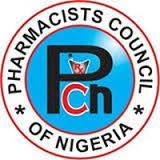A prominent figure in the Nigerian healthcare sector, Dr. Femi Kuti, has called on government to tackle critical aspects of infrastructure development, while leveraging on the immense potential of digital health solutions to enhance healthcare access and quality in Nigeria.
Kuti, who disclosed this in an interview on Arise News Channel monitored by our Correspondent, averred that Nigeria stands at the cusp of a healthcare transformation, with digital health innovations promising to enhance access, improve quality, and ensure an ethical approach towards patient information.
As the sector continues to evolve, Kuti, who is also the CEO & co-founder of Reliance Health, called for collaboration between government bodies, the private sector, and healthcare professionals, which is crucial to realising the full potential of these technologies.
He applauded the ongoing efforts by the National Health Insurance Authority (NHIA) and the Ministry of Health to strengthen regulations and raise the bar for Health Maintenance Organisations (HMOs), while highlighting their potential to build trust within the healthcare ecosystem.
During the interview, Kuti shared his perspective on the progress made within the Nigerian healthcare system, stating, “if you look broadly at the Nigerian healthcare system, we’re not there yet. We still have our challenges, but there has been significant improvement over the last 10 years. We now have significant multi-specialist hospitals that have opened across Lagos and other major cities offering high-end surgeries, that were previously only available abroad. Likewise, we are witnessing a reverse trend of skills transfer, where doctors, surgeons, and physicians who trained abroad are returning to Nigeria, bringing their expertise back to their home country after initially starting their training here.”
The dialogue also emphasised the need for digital health solutions to be designed with Nigeria’s existing infrastructure in mind to maximize their impact and ensure they reach a wider audience. In corroboration, there is a need for increased support to enhance the distribution of digital health services, he said, while pointing out that an appreciable portion of the population has access to mobile phones, but internet connectivity and reliable power supply remain challenges. Kuti urged stakeholders to focus on solutions that function well within these constraints.
Another important aspect of the dialogue centers on the need for concerted efforts from the government and private entities like HMOs to push the envelope further. In addition, the dialogue also touched on the current state of healthcare insurance in Nigeria and offered insights into the ongoing improvements and challenges within the sector. Kuti described the situation as an “inflection point” with significant potential for positive change to be spearheaded by key health authorities and private sector innovation.
The discussion also shed light on the ethical considerations surrounding digital health. Kuti identified quality of care and data privacy as the two most critical aspects that should be safeguarded. “As we implement these solutions, we must ensure they uphold the highest standards of care and protect the sensitive health data of individuals,” Dr. Kuti stated, even as he assured listeners that reputable HMOs like Reliance Health prioritize providing patients with access to the best possible care, understanding that proper treatment at the outset translates to lower costs in the long run.
Kuti, however, commended the enforcement of the Nigerian Data Protection Regulation, underscoring Reliance Health’s commitment to safeguarding sensitive patient information, while also advocating for clear communication and the fulfillment of promises, which are cornerstones of a healthy healthcare ecosystem. These are also fundamental drivers for strengthening trust among healthcare providers, insurers, and patients, he affirmed






